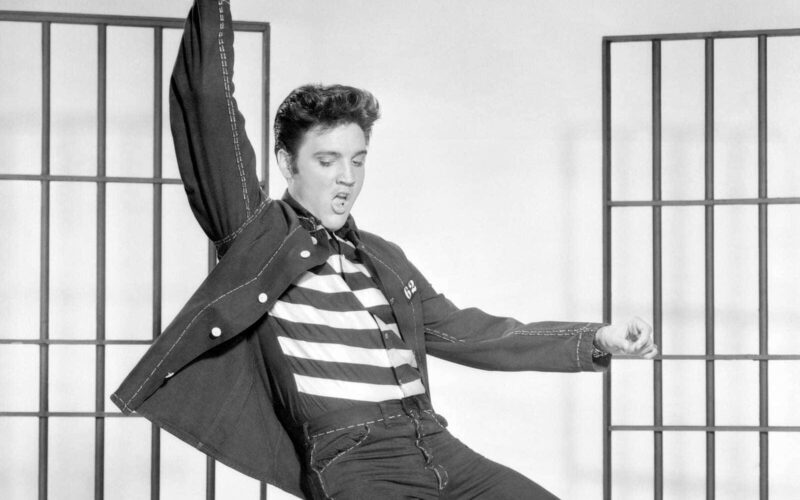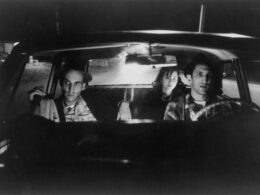With over 30 feature films to his name and countless portrayals on screen, Elvis Presley’s cinematic legacy remains a fascinating facet of his unparalleled cultural impact.
Elvis’s journey into Hollywood began in 1956 with Love Me Tender, a Western drama that capitalized on his rising stardom. Though originally cast for his musical appeal, Elvis quickly became a box office draw, blending his charisma with a growing acting skillset. Over the next 13 years, Elvis appeared in films that ranged from dramatic roles to lighthearted musicals, creating a genre of their own: the Elvis movie. Movies like Jailhouse Rock (1957), Blue Hawaii (1961), and Viva Las Vegas (1964) not only showcased his music but also solidified his image as a cultural icon. These films became vehicles for his magnetic stage presence and gave audiences worldwide a chance to see him perform in an era before live television and global tours became commonplace.
Elvis’s films were often built around his music, with each film including multiple musical numbers. Jailhouse Rock stands out as one of the most iconic, featuring one of the earliest examples of a fully choreographed music video within a narrative film. This groundbreaking sequence set a standard for integrating music and storytelling, influencing musical films and music videos for decades to come. Other films like Blue Hawaii transported audiences to exotic locales, offering escapist entertainment that paired Elvis’s smooth crooning with picturesque backdrops. The soundtracks of these films were often as successful as the movies themselves, producing chart-topping hits that became staples of his repertoire.
In the decades since Elvis’s passing, his life and career have inspired numerous portrayals in film and television. From Kurt Russell’s acclaimed performance in Elvis (1979) to Austin Butler’s award-winning turn in Baz Luhrmann’s Elvis (2022), filmmakers have sought to capture the complexity of the man behind the myth. These portrayals not only celebrate his achievements but also delve into the struggles he faced, from the pressures of fame to the personal challenges that shaped his life. They remind audiences that Elvis was not just an icon but a deeply human figure whose story resonates far beyond his music.
Elvis’s films remain a testament to his versatility and cultural impact. They helped bridge the gap between rock ‘n’ roll and mainstream entertainment, paving the way for musicians to transition into acting. Without Elvis, the careers of music stars turned actors—like Barbra Streisand, Cher, and Lady Gaga—might look very different. His movies also serve as time capsules of mid-20th-century American pop culture, capturing the optimism, style, and energy of their era. Whether it’s the rebellious energy of Jailhouse Rock or the romantic charm of Viva Las Vegas, these films continue to entertain and inspire new generations.
As we celebrate Elvis Presley’s 90th birthday, his contributions to cinema stand alongside his musical achievements as a vital part of his legacy. His films not only entertained millions but also redefined the role of a pop star in Hollywood, creating a blueprint that countless artists have followed. From his unforgettable performances to his enduring presence in popular culture, Elvis’s impact on film is as timeless as his music. So, on this milestone anniversary, let’s revisit the movies that remind us why Elvis Presley remains the King—not just of rock ‘n’ roll, but of the silver screen as well.









